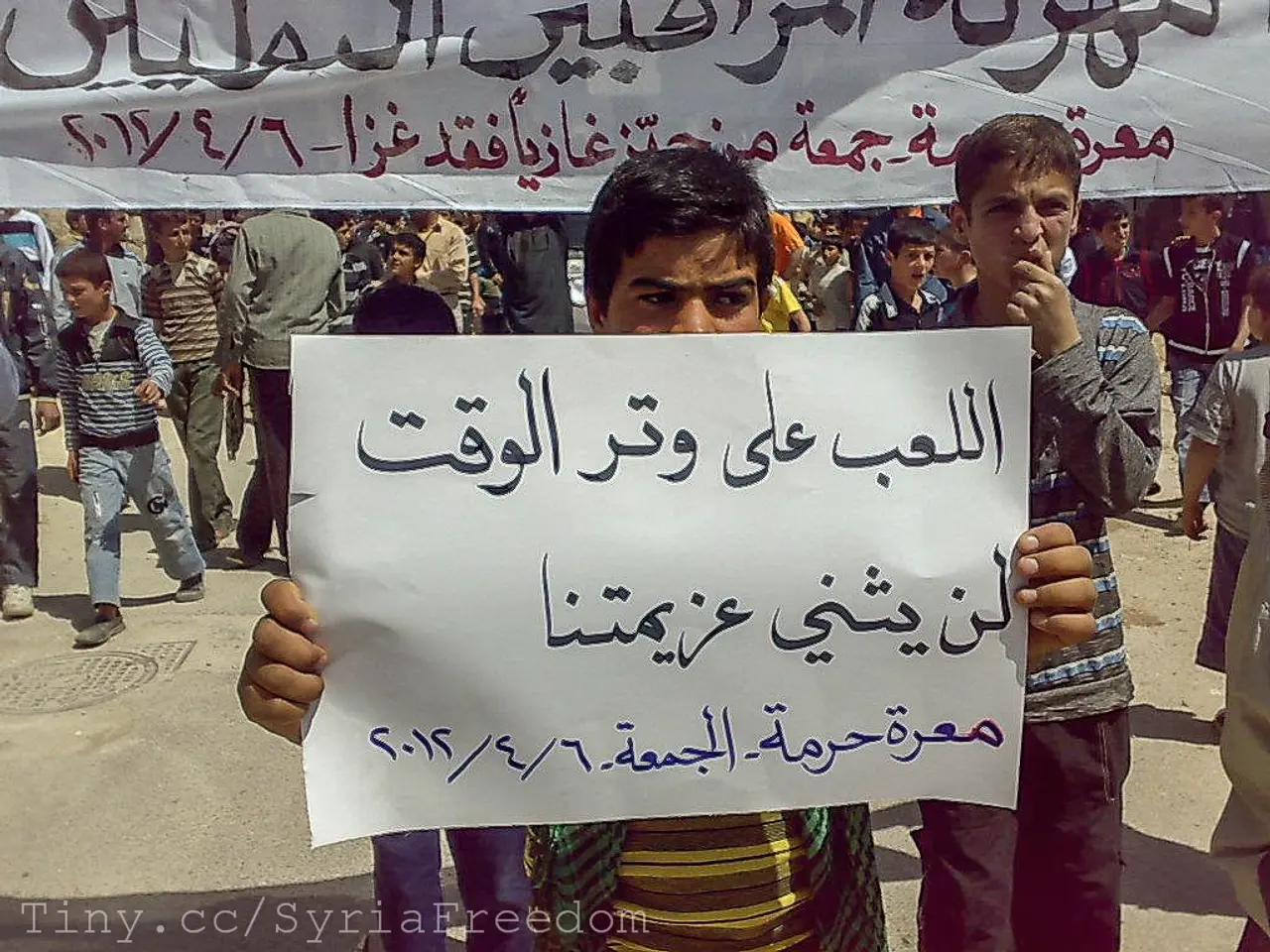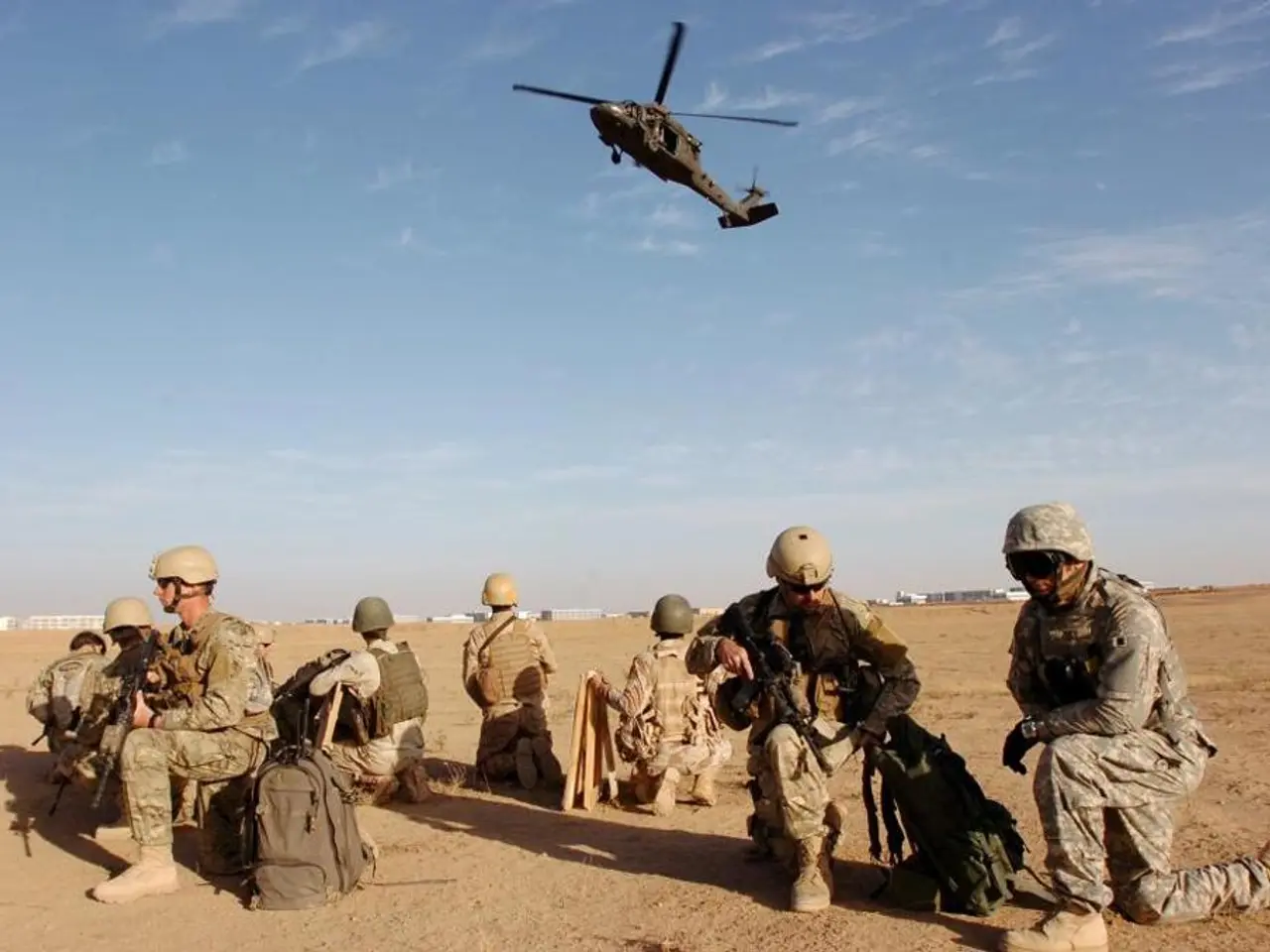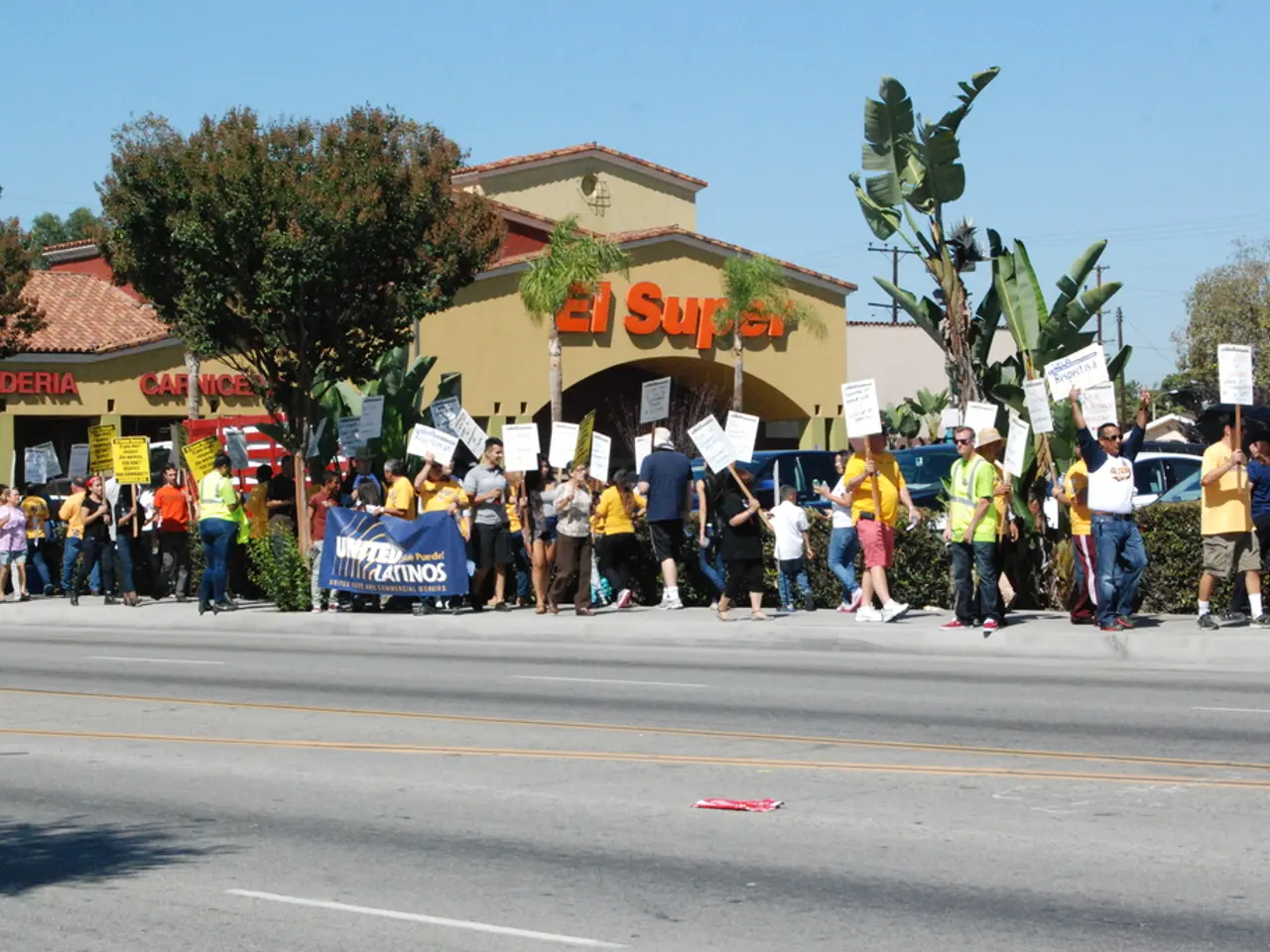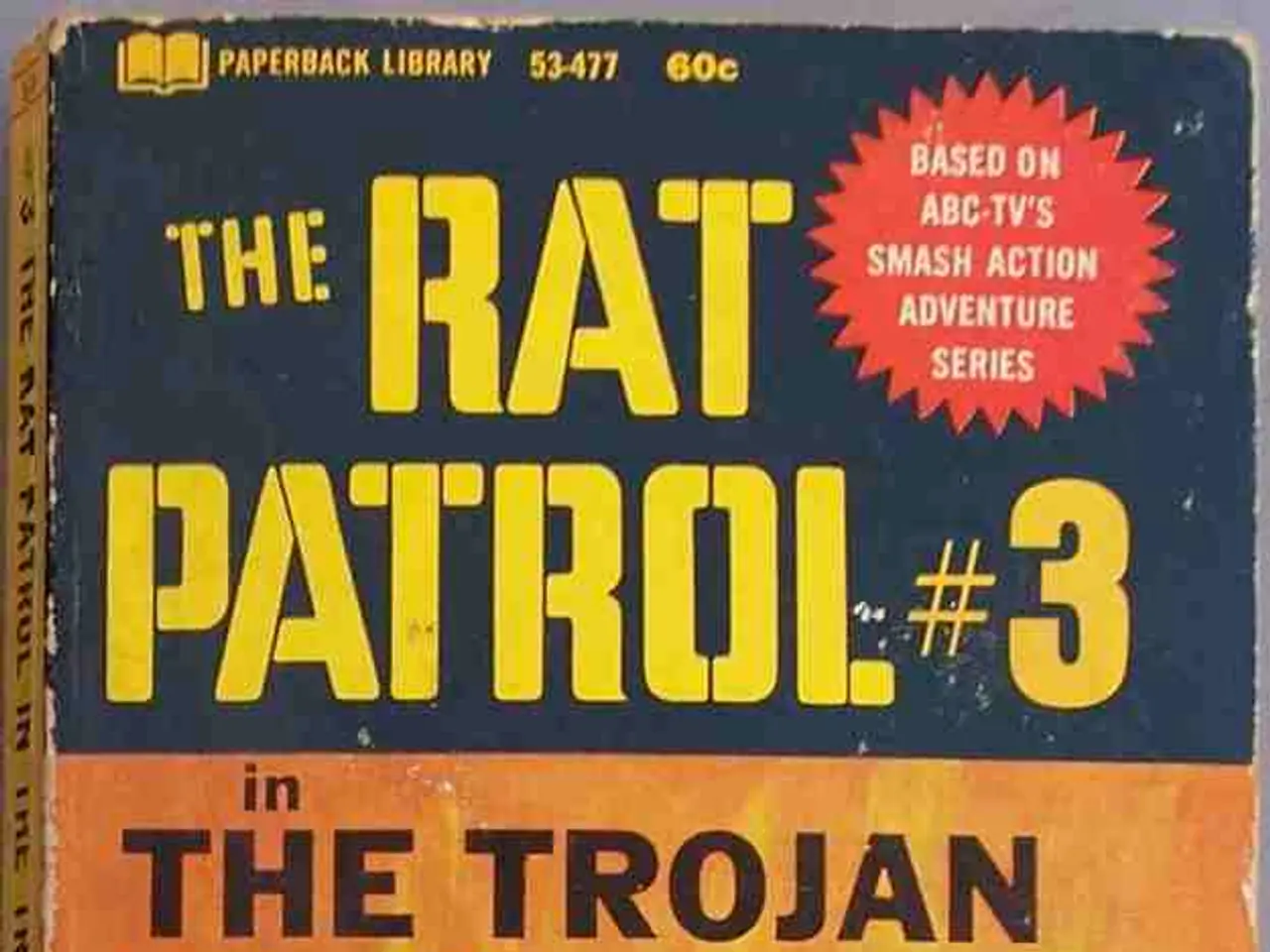Ceasefire of sixty days proposed, humanitarian aid on offer, and potential hostage swap discussed in fresh dialogue between Israel and Hamas
The Middle East is witnessing a significant development as Israel and Hamas are set to hold negotiations in Doha for a 60-day ceasefire. The proposed agreement, if successful, would mark a temporary truce between the two parties.
The key elements of the proposed ceasefire terms have been outlined. The deal envisions a phased release of hostages, humanitarian aid entry, and a gradual withdrawal of Israeli troops from the Gaza Strip, subject to certain conditions.
The hostage release schedule, as proposed, includes the return of slain hostages in five stages over the 60-day period, with the release of living hostages in two stages. However, it remains unclear which hostages will be released at each stage, with Israel and Hamas yet to decide.
Humanitarian aid is a crucial component of the proposed ceasefire. Hamas has demanded a full resumption of aid through UN-backed and international mechanisms, while Israel prefers aid distribution via the Gaza Humanitarian Foundation (GHF). The U.S. is expected to play a key role in overseeing the humanitarian aid flow and the ceasefire’s implementation.
Israel has made it clear that it will not agree to any deal that leaves Hamas in control of Gaza. The previous ceasefire deal that included full Israeli withdrawal collapsed due to Israel's opposition to ending the war with Hamas still governing the Strip.
The United States is actively involved in mediating the talks and is set to supervise the ceasefire. The U.S. delegation is negotiating in Doha under clear directives, with Prime Minister Netanyahu scheduled to confer with President Trump about the terms. The U.S. is expected to play a key role in overseeing the humanitarian aid flow and the ceasefire’s implementation, including ensuring commitments for possible extension beyond 60 days.
While the details regarding the timeline for the gradual withdrawal of Israeli troops have not been made public, it is part of the proposed terms. Similarly, the exact role of any other international mediators apart from the United States has not been specified.
In summary, the proposed 60-day ceasefire deal includes phased hostage releases, humanitarian aid influx with strict oversight, and conditional troop disengagement without conceding Hamas’s control. The United States, alongside Qatar and Egypt, is central to supervising and mediating this delicate process to secure and possibly extend the truce.
The proposed ceasefire deal also involves the discussion of social matters, such as the reinstatement of access to general news and political dialogue between Israel and Hamas, to encourage lasting peace. The international community, particularly the United States, is playing a pivotal role in facilitating these discussions, aiming to establish long-termstable relationships free from war-and-conflicts.








